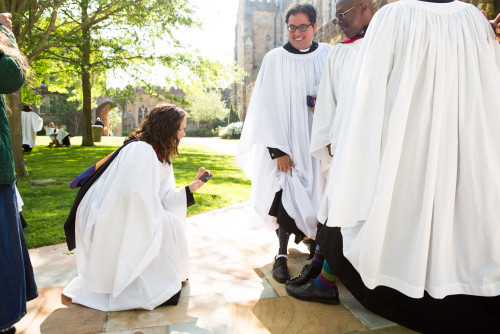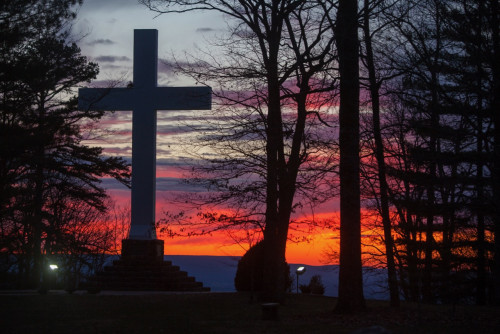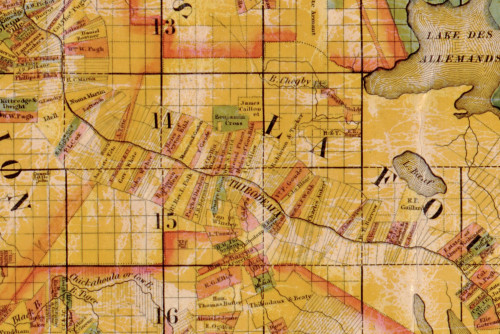Continuing Education for Locally Formed Clergy
The Certificate of Ministerial Studies offers additional education and theological training for ordained clergy who were formed in a local environment and who seek to enhance their professional and spiritual formation. The certificate emphasizes coursework in liturgy, homiletics, and practical theology. This program does not require an M.Div., and is offered in a hybrid format which combines online sessions and week-long residential intensive sessions in January and June.

The Certificate of Ministerial Studies aims to strengthen denominational formation and skills in graduates of local formation programs. The program is structured to offer flexibility, accommodating the busy schedules of bi-vocational clergy. It is delivered in a hybrid format, combining online learning with intensive in-person residencies. This structure allows students to balance their ministerial duties and professional vocations while engaging in advanced theological training.
Hybrid Learning Model
- Online Sessions: Twice monthly online classes.
- In-Person Residencies: Intensive week-long sessions at Sewanee in January and June.
Curriculum
-
Liturgy I: Theology & Structure of the Book of Common Prayer
-
Liturgy II: Practical Liturgics
-
Preaching the Liturgical Year
-
Practical and Pastoral Theology
Schedule
- Liturgy I & Preaching
- June 2nd - June 6th, 2025 (Residency)
- August 1st - December 16th, 2025 (Online Sessions)
- January 5th - January 9th, 2026 (Residency)
- Liturgy II & Theology
- February 2nd - May 16th, 2026 (Online Sessions)
- June 8th - June 12th, 2026 (Residency)
- August 1st - December 1st, 2026 (Online Sessions)
- January 5th - January 9th, 2027 (Residency)
Students complete the program in two years.
Tuition
Tuition for each session is $1,500 per course, with a total certificate cost of $6,000. Students could potentially split the cost in half with their parish or diocese ($3,000, $750/course) or in thirds with both parish and diocese ($2,000, $500/course).
Application Requirements
- Applicants should have a mature Christian faith, a history of active participation in a church community, and have begun a disciplined spiritual life.
-
Applicants should have a clear sense of vocation, lay or ordained, and a clear sense of how the degree program will support that vocation.
-
Official transcripts of degree granting undergraduate and post-secondary academic work from each institution attended are required.
-
Applicants should have the intellectual ability and academic background to engage the curriculum in a satisfactory way and to fulfill successfully the requirements of the degree to which the student is applying. Applicants may be required to submit additional writing samples.
-
An applicant whose first language is not English is required to complete the TOEFL or IELTS. Students who are not U.S. citizens or do not have legal permanent residency in the United States are required to have or acquire a valid U.S. visa.
-
An ecclesiastical endorsement or permission of one's bishop.
-
Completion of a recognized local formation program for ordination within The Episcopal Church.
-
Evidence of ordination and a minimum of one year of ministry experience.
-
Two letters of recommendation, one from a person who can attest to the applicant's academic acumen, normally a professor or college faculty member, and one from a church official or member of the clergy.
-
An official interview is required of all applicants.



